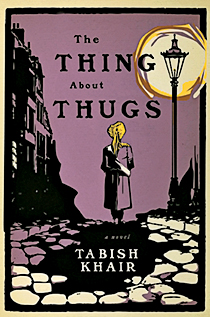 The British campaign against the Thuggee cult in India in the 1830s not only brought a useful word for brutal criminals to the English language, it was a crucial step in solidifying colonial control of the subcontinent. That’s true regardless of whether there was a real Thuggee cult—bands of men who killed travellers as part of their worship of the goddess Kali—as opposed to mundane gangs of murderers for profit, as many modern scholars believe. The suppression campaign was also a key brick in the wall of what Edward Said later called Orientalism, the Western assumption of superiority—as much moral and even cognitive as technological—over Eastern cultures. From Wilkie Collins onwards, the exciting defeat of wily but depraved Orientals by effortlessly superior Englishmen was a staple of Victorian literature.
The British campaign against the Thuggee cult in India in the 1830s not only brought a useful word for brutal criminals to the English language, it was a crucial step in solidifying colonial control of the subcontinent. That’s true regardless of whether there was a real Thuggee cult—bands of men who killed travellers as part of their worship of the goddess Kali—as opposed to mundane gangs of murderers for profit, as many modern scholars believe. The suppression campaign was also a key brick in the wall of what Edward Said later called Orientalism, the Western assumption of superiority—as much moral and even cognitive as technological—over Eastern cultures. From Wilkie Collins onwards, the exciting defeat of wily but depraved Orientals by effortlessly superior Englishmen was a staple of Victorian literature.
Khair, an Indian poet who teaches literature at a Danish university, turns the Orientalist trope inside out in his engaging novel. It’s London in 1837, and Capt. William T. Meadows has brought home from India, for further phrenological research, a confessed Thug named Amir Ali. (The two names are Khair’s nod to history: Amir Ali was the Thug killer who first led the British to a mass grave of victims, and in 1839 Philip Meadows Taylor wrote the first novel about the cult, Confessions of a Thug.) Naturally, when someone begins relieving London’s poor of their heads, suspicion falls on the outsider. Amir, who has secrets—as well as his neck—to protect, has no choice but to seek out the real killer.
The literary fun and games, which also include Indian versions of Victorian characters—a woman named Qui Hy does a mean Punjabi Madame Defarge—is only part of the charm of Khair’s hall of mirrors. There’s a neat little mystery in here too, even if those who ponder the author’s ironic question—just where do skull-lusting phrenologists, who actually believe character and fate can be read in the contours of a brain case, get off accusing other cultures of inferiority?—can see the answer coming.
Here’s where you can find the current Maclean’s bestsellers list, plus all of our books reviews.